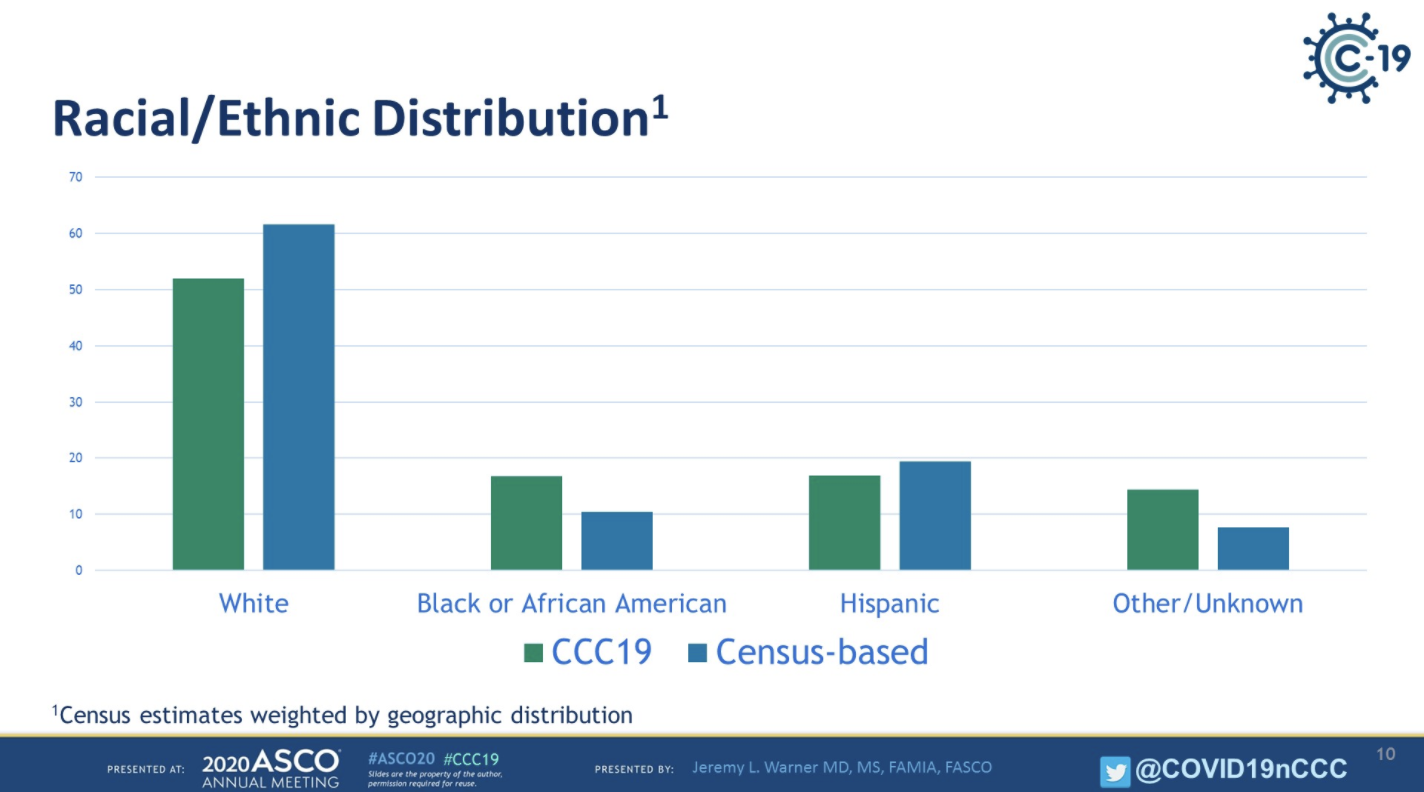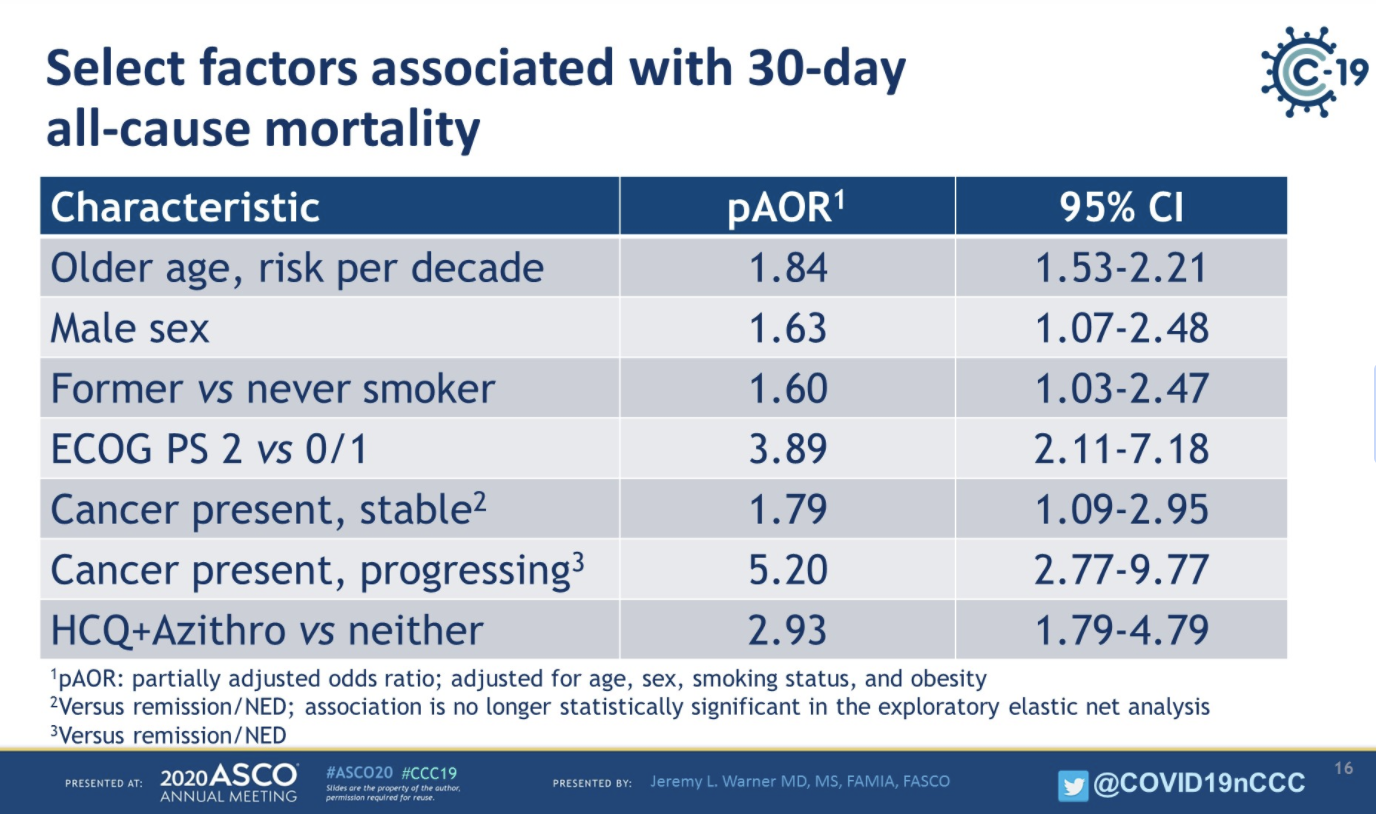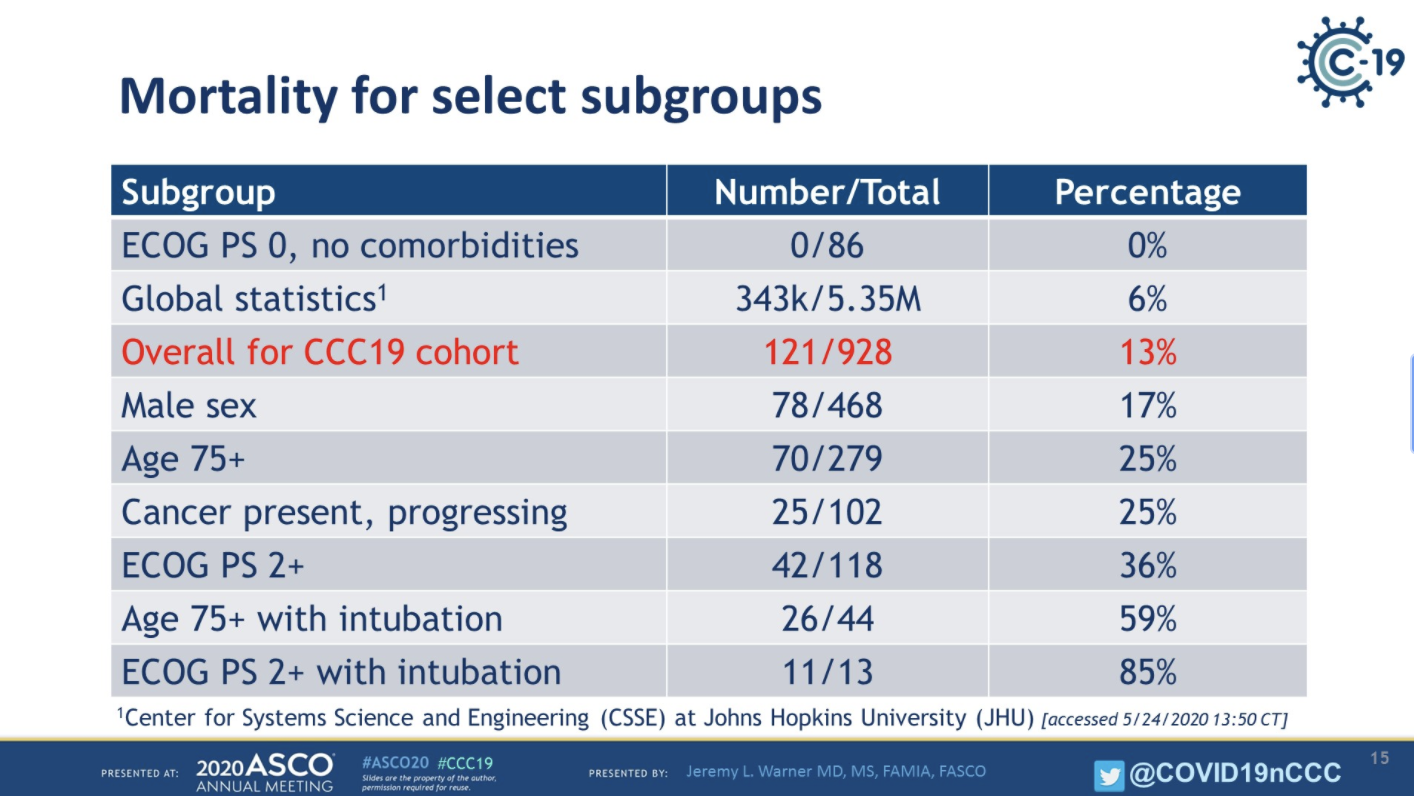- Harvard Medical School
- Advocate Aurora Health
- University of Washington
- University of Miami
- Vanderbilt University
As of today, there are 106 participating centers across the USA and Canada (Figure 1).
The Mission statement of CCC 19 is to collect and disseminate prospective, granular, uniformly organized information on people with cancer who are diagnosed with COVID-19 - at scale and as rapidly as possible.
Figure 1 – Participating sites: 
The hypothesis generated by this consortium was that patients with cancer are at an increased risk of adverse outcomes with COVID-19 due to:
- Increased age
- Increased comorbidities
- Increased number of healthcare contacts
- Decreased immunity due to cancer and/or treatment
- Reduced performance status
In the study presented, cases were accrued during the first 30 days of registry operation and evaluated. Patients with PCR-confirmed COVID-19 infection were analyzed. The primary outcome was 30-day all-cause mortality. Secondary outcomes included O2 requirement, hospitalization, ICU admission, mechanical ventilation, and a composite of severe illness. Potential prognostic variables for mortality were determined a priori and evaluated using multivariable logistic regression analysis.
Between March 17th and April 16th, 2020 1035 complete cases were reported, of which 928 were finally analyzed. The consort diagram of the study is shown in Figure 2. The median age was 66 years (IQR 57-76), with more than 30% of patients being over the age of 70, and 50% of patients were males. The racial/ethnic and geographic distribution are shown in Figures 3 and 4, respectively.
Figure 2 – Study Consort diagram:
Figure 3 – Racial /ethnic distribution:
Figure 4 – Geographic distribution:
82% of the patients had solid tumors, and 22% of the patients had hematologic malignancies. 12% of the patients had multiple cancers. The most common cancer types are shown in Figure 5. 68% of the patients had an ECOG performance status of 0/1, and 45% of patients were in remission or with no evidence of disease. Only 11% had progressing disease, and 32% of patients had stable disease.
Figure 5 – Most common cancer types:
Table 1 demonstrates the rates of complications, with 13% of patients dying. Detailed mortality data of select subgroups are shown in Table 2, with high rates of mortality manifested especially by older male patients with worse performance status, who were intubated, and had progressing cancer. Table 3 demonstrates select factors that were shown to be associated with increased 30-day all-cause mortality. The most striking factors included progressing cancer, worse performance status, and combined treatment with hydroxychloroquine and azithromycin.
Table 1- Complication rates:
Table 2 – Mortality for select subgroups:
Table 3 – Select factors associated with 30-day all-cause mortality:
Dr. Warner continued his talk and gave an update on the study’s status from the second data block for the original 928 patients that were analyzed. The median follow-up is now reported as 21 days, and the 30-day mortality increased from 121 to 124. The registry has so far accrued 2143 cases, and analyses of this larger cohort are still underway.
Dr. Warner concluded his talk and stated that patients with cancer and COVID-19 have high rates of death and complications. General factors such as male sex and older age were shown to be associated with increased mortality in patients with cancer. Cancer-specific factors such as worse ECOG performance status and progressing cancer were shown to be associated with increased mortality as well. Lastly, the risk or benefit of hydroxychloroquine needs to be defined using randomized trials.
Presented by: Jeremy Lyle Warner, MD, MS, Vanderbilt University, Nashville, TN
Written by: Hanan Goldberg, MD, MSc., Urology Department, SUNY Upstate Medical University, Syracuse, NY, USA, Twitter: @GoldbergHanan at the 2020 American Society of Clinical Oncology Virtual Annual Meeting (#ASCO20), May 29th-May 31st, 2020
Related Content:
Watch: COVID-19 and Cancer Consortium (CCC19) - Jeremy Warner - Ali Khaki - Petros Grivas
Watch: Navigating GU Oncology Care during the COVID-19 Pandemic - Petros Grivas


